People of all walks invest in ‘the great equalizer’
Guns. During the time of Covid-19, gun sales have hit all-time high. And it’s not just the usual repeat customers.
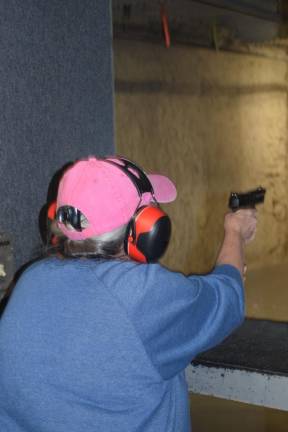
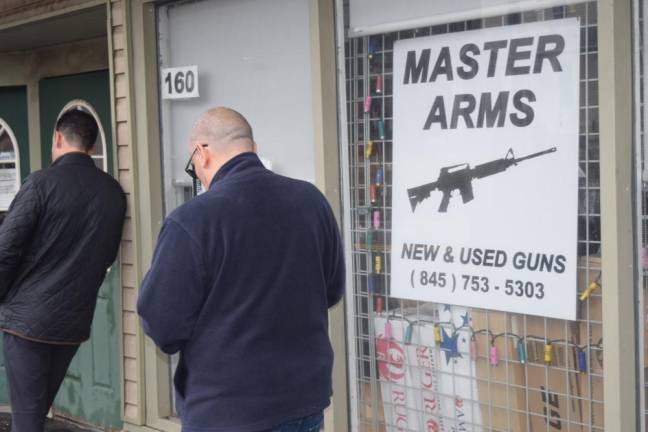
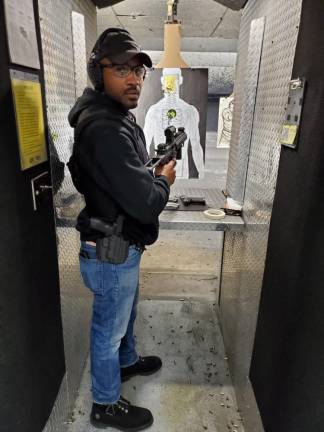
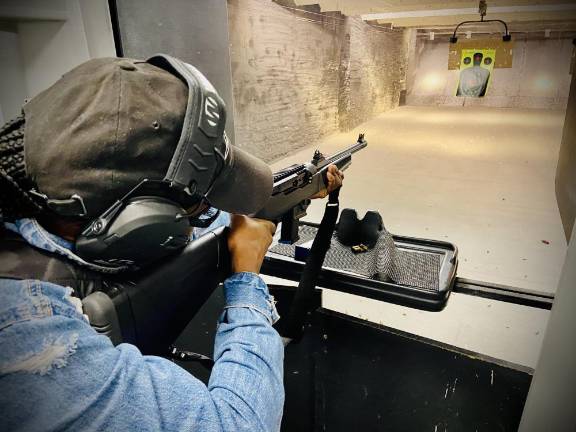
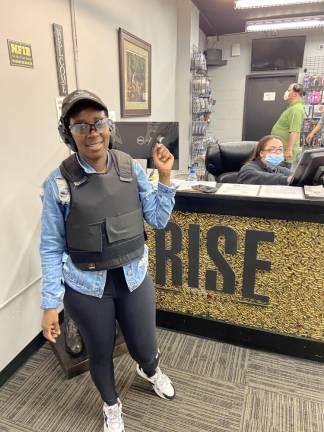
More Americans bought a gun in June than in any month on record, and it’s not just the usual repeat customers. The gun binge, which began in March, has cleaned out shelves from Walmart to Dick’s to local sporting goods shops.
Jim Gully, 78, owner of Master Arms in Sloatsburg, N.Y., has been doing his store’s business exclusively online since the pandemic. But even without personal interaction, his customers are not shy about identifying themselves as greenhorns. “‘I never owned a gun before, but I need something for home defense’ – it’s almost like they’re reading from the same script,” he said. “They realize that if there’s a problem, they could be on their own.” What with Covid-related supply chain snags and panic-driven hoarding, “there aren’t any home defense shotguns available now,” he said. Some of his customers have been stockpiling ammunition, too.
According to FBI statistics, more than 3,940,000 background checks were initiated in June through the National Instant Criminal Background Check System, a precursor to buying any sort of firearm, from a handgun to a long gun to accessories. That’s up 70 percent from last June, and it breaks the previous monthly high set in March as the coronavirus pandemic took hold. While the government doesn’t track firearms sales, it does count the background checks that have become the best proxy for gun sales.
Maliuqka Burton, 46, a nurse who lives in Newburgh, N.Y., bought a shotgun and rifle in June, and is waiting on her pistol permit to get a handgun. Her decision was not directly motivated by the news cycle. She wants to be able to protect herself when she gets called in to her hospital’s trauma unit at three in the morning. The paperwork for her pistol permit had been sitting in her glove compartment for about a year, and she had taken the required gun safety course, but it was the support of the newly formed Hudson Valley Nubian Gun Club that nudged her to go through with all of it.
Gun ownership has long skewed heavily male, white, and conservative, with 41 percent of Republicans reporting they own a gun versus 16 percent of Democrats, according to a 2017 Pew Research Center survey. That profile of the typical owner still fits, but it is beginning to broaden. A recent survey by the National Shooting Sports Foundation, an industry group, found that gun stores nationwide have seen a notable increase in business from first-time buyers in the first four months of 2020.
Of those first-timers, the nationwide trade group survey found that a higher proportion than usual – more than 40 percent – were women. Women already made up the fastest-growing segment of gun owners. Around 23 percent of women in the U.S. now own guns, according to the National Rifle Association, up from 13 percent in 2005.
Black gun clubs gain traction
Black gun groups are gaining traction, too. The Newburgh-based Hudson Valley Nubian Gun Club is seeing so much interest, particularly from women, that it expects to triple its membership from 30 to 90. The National African American Gun Association has gained 15,000 new members so far this year.
Damon Finch is president of the year-old Hudson Valley Nubian Gun Club, a U.S. Air Force veteran, and an NRA firearms instructor. “You have people who are concerned with the temperature that’s out there – that the media and the government is putting out there – where they are a little bit nervous,” he said. “Not just because of the racial tension. You know, a lot of people think it’s because of the racial tension. A lot of it has to do with Covid, the fact that when the governor shut down the state on March 20, there was a lot of uncertainty as to if things really went further south, would they have been able to protect their homes and their families and so forth.”
A recent meeting of the club drew people from age 17 to 70, a mix that included a teacher, nurse, a bodyguard, a corrections officer, and police officers past and present. “Then of course we have many people who are originally from the city, where they didn’t grow up with firearms,” said Finch. “Now all of a sudden they’re living in the suburbs, and there’s this new instrument, there’s this new tool called the firearm that they’re interested to learn about.”
The Tommy Gun Warehouse Factory Outlet in Greeley, Pa., has been doing about ten times the amount of business as usual, estimates store co-manager Bob Holmes. “It’s all sorts of new people, and people who’ve never had a gun before,” he said over the phone in between helping customers. Owned by the Kahr Firearms Group, the outlet has the advantage that it can funnel guns directly to its retail store.
“There are people that come from all over the tristate area because they’re afraid. They’re very unsettled,” said Holmes. “They know absolutely nothing about the gun, but they do know a gun protects them.”
The customers who’ve been coming in since March seem, newly, to range more widely across the political spectrum, he said. It’s never a surprise to see “more conservative-minded people” come in and buy their first gun when they start feeling unsafe for whatever reason, he explained. But “the liberal mindset, you know, that ‘Somebody will take care of me – like, I’ll call the police, and they’ll take care of me,’” has been dealt a blow. That’s particularly true in rural areas where police might take half an hour to show up under normal circumstances, said Holmes, who used to work in security. “That doesn’t do anybody any good, so it becomes clear, I have to do it for myself. What will I do it with? And then it dawns on them, ‘Hey, I need a gun.’”
A firearm is “the great equalizer,” said Holmes. “A 110-pound woman, five foot two, with a .45 or a .38 Special becomes a very formidable individual.”
Armed novices worry experts
There are guns aplenty, but training is a question mark.
Even as business booms, the surge in armed, spooked novices is worrisome to people who know their way around firearms. Firearm access triples the risk of suicide death and increases the risk of homicide, according to Giffords, a gun violence prevention group. A gun is successfully used in self-defense of a crime less than one percent of the time, according to a medical study of 14,000 theft attempts. The fact that there are now millions more guns at large in the country has even gun store owners feeling apprehensive.
“People are buying guns because they’re afraid, and they shouldn’t. That shouldn’t happen in this country,” said Gully, who before the pandemic taught kids to shoot through an NRA-sponsored youth rifle program. “A gun doesn’t solve all the problems. Sometimes it creates them. You just can’t buy one of these things and load it and point it at somebody. It’s serious business owning a firearm, so you should think about some instruction from a certified instructor. I mean, you wouldn’t buy a car without driving instruction and get in it and take off, right?”
Holmes seconds that caveat. “You need to know how to use the gun and keep it safe, and keep yourself safe with it,” he said. “You can’t have a gun being a greater threat to you than what you’re trying to protect against.” He too invokes the car analogy: “You’re trying to make life convenient for yourself to drive to the store, but if you’re a menace on the road, maybe it’s better you don’t,” he said, laughing. “You call up for delivery, you know? Good things often have risks – skiing, snowboarding, motorcycle racing – you can get killed with all of them, but you got to be responsible, you’ve got to be educated about it.”
Bryan Reeves, a New York State police officer who lives near West Point, N.Y., said he worries about the lack of available training to new buyers. “Especially when it comes to long guns, there’s no requirement,” he said. “You can go to Walmart, Dick’s, any sporting goods store and buy it and that’s it, you walk out without even a conversation about how to handle it safely. That’s always been my biggest concern, and I saw the giant uptick in that when the pandemic first started. I saw the shelves in Walmart go empty, and knowing that training wasn’t mandatory when purchasing a firearm, that’s worrisome.”
Reeves joined the Hudson Valley Nubian Gun Club to offer his expertise to the community and be another face and voice challenging the stereotype. “There’s always the public image, you see a Black person with a firearm, it’s either a negative aspect or you’re working: you’re military or law enforcement or security,” he said. “There’s nowhere in between.” He has taken four people out to an indoor gun range, including a 27-year-old mom who works in the hospitality industry and a licensed, armed security guard who wanted to touch up his professional skills.
“I like to create that familiarity, and then you can make the decision if this is something you want to pursue,” said Reeves.
The American way
Khoury Porter, of Nanuet, N.Y., a martial arts and boxing coach, auxiliary police officer, and NRA-certified firearms instructor, is an avid gun collector. He recently picked up a Colt King Cobra .357 Magnum revolver that he’s wanted since he was a kid. “There are certain things that you need to be involved in if you’re going to call yourself American: your gun rights, your voting rights, your home ownership,” he said.
“I’m probably the only NRA member that comes from an inner city urban environment, an actual paying, supporting member for like 25 years,” he laughed. “I’m probably the only one in America.”
Porter is starting to see more Black people getting permits and firearms now, but he’s spent years promoting the lifestyle of shooting for sport and self-defense. There is power in numbers, he said, when it comes to counteracting the Hollywood trope in which a Black person with a gun is always a gang member or sideways-shooting thug. (Who shoots sideways, anyway? No one he’s ever seen.)
More than that, a gun is one of the avenues open to almost everyone to stand up and be counted for a price tag of about $500. “The minute that you don’t own a gun, the minute that you don’t own a home, the minute that you’re not married, the minute that you’re not part of the institution that we call the American way of life, you don’t matter,” he said.
Gun ownership imparts value in the eyes of society, he said. “People think, ‘Oh you must be a decent person, because in order for you to get that firearm, you had to pass all kinds of criminal and moral background checks,’ follow me? That means you’re a responsible person,” he said. It may be as vacuous a measure as any, he implied, particularly since once you get your pistol permit, you have it for life, with no checking into your mental health or who’s living in your house. But that’s beside the point. “Anything you can get that is a means of them testing your character, and your track record as a human being and how you function in society is a very good look for you,” he said.
Getting comfortable with a new tool
Burton, the nurse, is getting more comfortable after two trips to the indoor range. She no longer jumps at the loud sounds and feels better holding the long gun she initially felt might be too big for her. Her application for her pistol permit is scheduled to be processed in December. In the meantime, she’s studying up. “I feel like I need to be still trained,” she said. “I need a lot of guidance.” She’s looking forward to going to the range again with the Hudson Valley Nubian Gun Club. “I love that gun club. I like the vibe, just the professionalism of it, the education, and just learning stuff that I did not know,” she said.
She takes seriously the additional layer of responsibility that comes with owning a gun. Her kids are grown, but still, “I thought about that, do I really want that in my house?” Not only is there the matter of storing it safely, possibly in a safe, separate from the bullets. There’s also the chance that having a gun could escalate an everyday dispute like a road rage incident into a deadly encounter. She has seen instances of that on social media and the news over the years, and they have stuck with her.
She’s not concerned about losing her own cool. “I’m very mature, I’m an RN, I have lots of things to lose,” she said. “Even when I was younger, people would always say to me, ‘Oh you got your head on straight.’” But seeing the empty Walmart shelves, “I do worry about other people,” she said. “There are other people that are fearful of what’s going on, and all these people just ran out and bought guns. You’ve got to be worried about in your mind, what are they thinking to have wanted to go do that?”
Burton had always had a negative association with guns before she joined the gun club. But as she keeps practicing and learning all the parts of the firearm, her attitude is shifting. She likes hearing from peers in the gun club from different fields, like the corrections officer who, just like Burton, feels that she needs more firearms training. “This is not negative at all,” she said. “Nobody’s hurting nobody, and nobody speaks like that. It’s just all professional, and people trying to learn, and I like that.”
““There’s always the public image, you see a Black person with a firearm, it’s either a negative aspect or you’re working: you’re military or law enforcement or security. There’s nowhere in between.” --Bryan Reeves